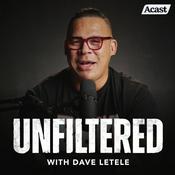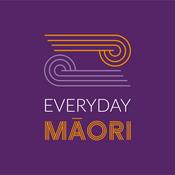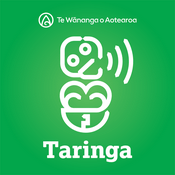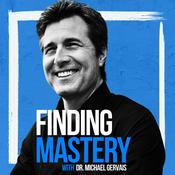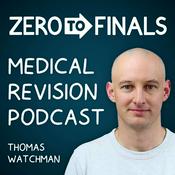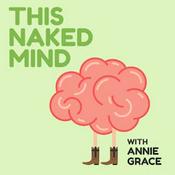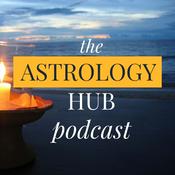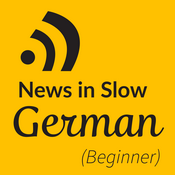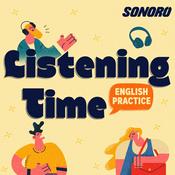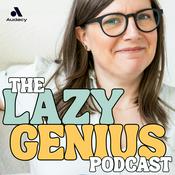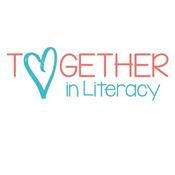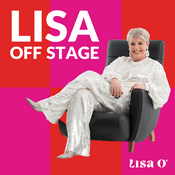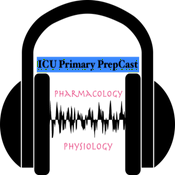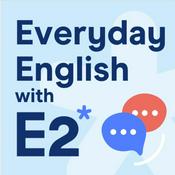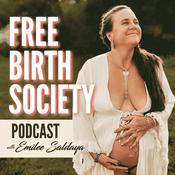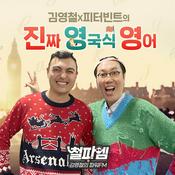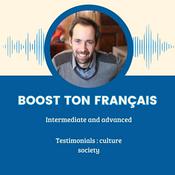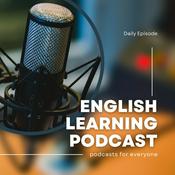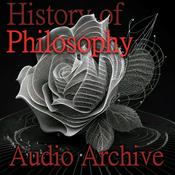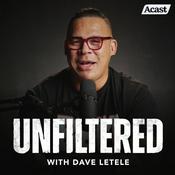49 episodes
S05E01:Insights for Indigenous Evaluation: The Story Behind the Book with Taylor Wilson & Nadine Flagel
17/2/2026 | 51 mins.Overview
Season 5 opens with a reflective and “meta” conversation about the creation of Insights for Indigenous Evaluation—an open-access book drawn from the first season of the podcast. Gladys is joined by Taylor Wilson and Nadine Flagel, who share the journey of transforming spoken conversations into a living, multimedia text.
Together, they explore what it means to carry stories with care: honoring voice, relational accountability, Indigenous knowledge stewardship, and editorial responsibility. The episode offers a behind-the-scenes look at decisions around accessibility, open access publishing, copyright, and co-creation. Rather than producing a traditional textbook, the team chose to create a reflective, multi-vocal resource that invites readers into relationship with Indigenous evaluation practices.
This conversation highlights themes of Indigenous resurgence, relational editing, stylistic integrity, and knowledge sovereignty while reminding listeners that how we publish and share knowledge must align with the values we hold in evaluation practice. The episode closes with an invitation to engage with the book, support the podcast, and continue learning in community.
Taylor Wilson is an Ojibwe, Cree, and Filipina scholar and member of Fisher River Cree Nation on Treaty 5 territory, with connections to Peguis First Nation (Treaty 1), Fairford First Nation (Treaty 2), and the Ilocano region of the Philippines. She grew up between Fisher River and Winnipeg (Treaty 1 and homeland of the Métis Nation) and now lives and works primarily the traditional territory of the xʷməθkʷəy̓əm (Musqueam) Nation. Taylor is currently pursuing her PhD in Integrated Studies in Land and Food Systems at the University of British Columbia.
Taylor’s work is rooted in Indigenous food sovereignty, health, and evaluation, with a commitment to Indigenous methodologies, relational accountability, and data sovereignty. She has contributed to community-based research and evaluation, curriculum development, and taught in Australia, Hawai’i, and across central and western Canada. She began her journey with Dr. Gladys Rowe and the Indigenous Insights team in 2024 offering support to the many projects, partners, and communities they work with. She describes herself as a learner, listener, and helper to strengthen relationships, stories, and practices that sustain Indigenous life for generations to come.
Nadine Flagel is a Vancouver, BC-based settler with English, Irish, and German roots. She has a BA in English from Simon Fraser University in Burnaby, British Columbia, an MA in Cultural Studies from the University of Sussex, in Brighton, UK, and a PhD in twentieth-century English Literature from Dalhousie University in Halifax, NS. Her dissertation was about how contemporary fiction borrows from 18th and 19th century black autobiography, especially slave narratives. Nadine taught literature and composition on contract at various postsecondary institutions in Canada for nearly twenty years. She has also worked as a grant and report writer at not-for-profits. Now she works as a researcher, writer and editor on books and articles connected to social justice. She’s also a textile artist with a specialty in reusing fabrics in rugs and quilts.
Resources
Insights For Indigenous Evaluation Book (Open access and free online!) https://pressbooks.pub/indigenousinsightscollective/
Elements of Indigenous Style, Gregory Younging
Beneath the Red Umbrella, Genevieve Fuji Johnson, Carrie Porth & contributors
A Room of One’s Own, Virginia Woolf
For more visit: https://www.gladysrowe.com/podcast (Scroll to the bottom to subscribe to the newsletter!)
If you are loving this podcast please leave a five star review on your favourite streaming service.
If you would like to offer support please visit: https://www.buymeacoffee.com/InsightsPodS04E07: What are we carrying from this season? Elizabeth Carlson-Manathara and Gladys Rowe
02/2/2026 | 45 mins.Overview
In this closing episode of the Season 4 Spotlight Series, Dr. Gladys Rowe and Dr. Elizabeth Carlson-Manathara reflect back on the teachings, tensions, and transformations that emerged across the season’s conversations. This episode creates space for collective sensemaking, where Liz and Gladys reflect on how these dialogues have shifted their thinking about evaluation, leadership, and anti-colonial practice.
Drawing on lessons from guests throughout the season, they explore the importance of doing the “work before the work,” grounding evaluation in relationship, story, and accountability. The conversation weaves together reflections on Indigenous and anti-colonial theories of change, the courage to “say the things,” evaluation as a practice of love, and the responsibility to evaluate toward the futures we want to live into. The episode closes with gratitude for the guests and listeners who journeyed through the season, and an invitation to carry these teachings forward into evaluation spaces, institutions, and everyday practice guided by love, humility, and relational accountability.
Resources
Leanne Simpson As We Have Always Done: Indigenous Freedom through Radical Resistance https://www.goodreads.com/book/show/34850530-as-we-have-always-done
For more visit: https://www.gladysrowe.com/podcast (Scroll to the bottom to subscribe to the newsletter!)
If you are loving this podcast please leave a five star review on your favourite streaming service.
If you would like to offer support please visit: https://www.buymeacoffee.com/InsightsPodS04E06: Stories, Trust, and Showing Up: Evaluation as Relationship with Corrie Whitmore
12/1/2026 | 45 mins.Corrie Whitmore, Associate Professor of Health Sciences at University of Alaska Anchorage, served as 2023 President of the American Evaluation Association and founding president (2012) of the Alaska Evaluation Network (AKEN). She is a lifelong Alaskan who returned to the state after completing an M.S. in Industrial and Organizational Psychology and Ph.D. in Developmental Psychology at Virginia Tech to help Alaska "grow our own" workforce and support the health of our community in the Division of Population Health Sciences at the University of Alaska Anchorage. Her current work centers around exploring the role of trust in a patient-provider relationship and evaluating programs designed to build and support community wellness, particularly in tribal contexts. Dr. Whitmore's teaching invites story into the health policy classroom, partners evaluation students with community programs where they can apply their learning to support operations, and introduces students to what public health looks like in Alaska.
Overview
In this episode Dr. Gladys Rowe and Dr. Elizabeth Carlson-Manathara are joined by Dr. Corrie Whitmore, Associate Professor of Health Sciences at the University of Alaska Anchorage, former President of the American Evaluation Association, and founding President of the Alaska Evaluation Network. Corrie shares her journey as an “accidental evaluator,” tracing how her lifelong relationship to Alaska, her academic training in psychology, and her work within Alaska Native–led health systems shaped her understanding of evaluation as a deeply relational and community-rooted practice.
The conversation explores the role of trust, story, and cultural humility in evaluation, particularly within Indigenous and Tribal contexts. Corrie reflects on learning to move beyond Western notions of professionalism and expertise, emphasizing the importance of showing up as a full human being in relationship with community. She shares lessons from her work in Alaska Native health organizations, her experiences building local evaluation capacity, and her leadership within AEA—including her decision to center story as the 2023 conference theme. Throughout the episode, Corrie speaks candidly about mistakes, learning, and growth, offering grounded insights into land acknowledgements, Indigenous sovereignty, evaluation ethics, and the responsibility evaluators hold to listen, witness, and translate community knowledge without extracting it. The episode closes with a powerful reminder that evaluation, at its best, is not about distance or neutrality but about relationship, accountability, and honoring the stories communities entrust us to carry forward.
Resources
Article: Teaching Evaluation Through Community-Engaged Learning Courses
Article: Making Land Acknowledgements in the University Setting Meaningful and Appropriate
Article: Facilitating Culturally Safe Conversations Around Substance Use Disorder and Contraception to Provide Inclusive Care for Neurodiverse and Neurotypical Populations
For more visit: https://www.gladysrowe.com/podcast (Scroll to the bottom to subscribe to the newsletter!)
If you are loving this podcast please leave a five star review on your favourite streaming service.
If you would like to offer support please visit: https://www.buymeacoffee.com/InsightsPodS04E05: Liberatory Evaluation, Trust-Based Giving, and Reimagining Impact with Hafsa Mustafa
17/11/2025 | 50 mins.Bio
Hafsa Mustafa – Decolonial MEL Strategist - is a researcher, writer, and data expert with more than 20 years of experience in the field of learning and evaluation. Hafsa's perspective is rooted in both professional expertise and personal history.
Her career spans grassroots movements, philanthropy, impact investing, and academia, where she has helped organizations turn complex information into actionable insights and impact strategies that are grounded, equity-driven, and built to endure.
Informed by mentorship across global movements and a family legacy rooted in justice, she is committed to making research and evaluation non-extractive, relational, and a driver of transformative change.
Overview
In this thought-provoking episode, hosts Dr. Gladys Rowe and Dr. Elizabeth Carlson-Manathara are joined by Hafsa Mustafa, a decolonial monitoring, evaluation, and learning strategist whose 20+ years of work span grassroots movements, philanthropy, impact investing, and academia.
Hafsa shares her evaluation origin story, weaving together her family’s history of displacement under British colonialism, her experience growing up in Karachi’s dual education systems, and her awakening to how colonial frameworks shape knowledge, language, and data. In this episode, the conversation moves through the many ways Hafsa is reimagining evaluation as a liberatory and justice-oriented practice. She shares how her partnerships with global social movements have reshaped the meaning of impact - centering collaboration, relationship, and shared power rather than compliance or control. Hafsa reflects on the principles of trust-based giving, which challenge traditional philanthropy by emphasizing long-term, relationship-centered approaches grounded in mutual accountability. Drawing inspiration from solidarity economies in Mexico, landless worker movements in Brazil, and women’s cooperatives in Nepal, she highlights how collective power and intergenerational learning create sustainable change. Finally, Hafsa introduces her “liberatory evaluation” tools - the diagnostic and champion’s map - that help individuals and organizations locate themselves within systems of power and envision tangible pathways toward equity and transformation.
Resources
Just Insights – https://justinsights.org
Email: [email protected]
For more visit: https://www.gladysrowe.com/podcast (Scroll to the bottom to subscribe to the newsletter!)
If you are loving this podcast please leave a five star review on your favourite streaming service.
If you would like to offer support please visit: https://www.buymeacoffee.com/InsightsPodS04E04: Joyful Militancy, Black Liberatory Evaluation & Mind-Your-Business Solidarity with Dr. Monique Liston
03/11/2025 | 54 mins.Bio
What happens when Black identity is loved, protected, and defended as we collectively learn about process and change in communities, organizations and programs? This is the question that dr. monique liston unapologetically built a community-engaged intellectual and regenerative life practice around. She is the founder, chief strategist, and joyful militant at UBUNTU Research and Evaluation, an undisciplined learning organization in Milwaukee, Wisconsin. As the daughter of Ursula, granddaughter of Gracie J. and Bernice, pet-mom of Simone, a mini Goldendoodle, and Franklin, a Russian Box Tortoise, she asks that you send her recommendations of bookstores, restaurants, and beaches to help her find joy while surviving the end of a white supremacist heteropatriarchal queerphobic world.
Overview
In this powerful episode, Gladys and Liz are joined by Dr. Monique Liston — Founder, Chief Strategist, and joyful militant at Ubuntu Research & Evaluation in Milwaukee, Wisconsin. Monique centers Black liberation, joy, and collective thriving in her evaluation practice and invites us to imagine — and measure — toward the worlds our communities deserve.
Monique invites us into a bold reimagining of evaluation as a liberatory practice rooted in Black joy, dignity, and possibility. She describes her approach to Black liberatory evaluation as one that rejects deficit-based narratives and instead insists on measuring progress toward the thriving futures Black communities deserve. Together, the conversation explores how solidarity requires what Monique calls “minding your business deeply”—grounding ourselves in our own histories, responsibilities, and communities so that cross-movement alignment is built with intention rather than assumption. They also dive into Ubuntu’s Afrofuturist Evaluation and Beloved Community frameworks, which evaluate present-day efforts based on their ability to move us toward worlds free from oppression. Throughout, Monique speaks candidly about the tensions evaluators face when working inside systems that don’t always reflect our values, and emphasizes the role of joy, curiosity, and writing as essential acts of resistance, mentorship, and future-building.
Resources
Check out Fractals here.
AEA GEDI Internship
Email: [email protected]
For more visit: https://www.gladysrowe.com/podcast (Scroll to the bottom to subscribe to the newsletter!)
If you are loving this podcast please leave a five star review on your favourite streaming service.
If you would like to offer support please visit: https://www.buymeacoffee.com/InsightsPod
More Education podcasts
Trending Education podcasts
About Indigenous Insights: An Evaluation Podcast
Indigenous evaluation conversations
Podcast websiteListen to Indigenous Insights: An Evaluation Podcast, Unfiltered With Dave Letele and many other podcasts from around the world with the radio.net app
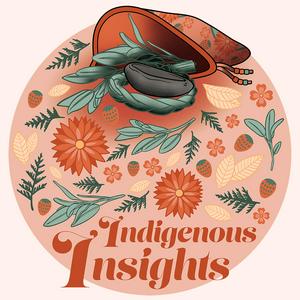
Get the free radio.net app
- Stations and podcasts to bookmark
- Stream via Wi-Fi or Bluetooth
- Supports Carplay & Android Auto
- Many other app features
Get the free radio.net app
- Stations and podcasts to bookmark
- Stream via Wi-Fi or Bluetooth
- Supports Carplay & Android Auto
- Many other app features


Indigenous Insights: An Evaluation Podcast
Scan code,
download the app,
start listening.
download the app,
start listening.

